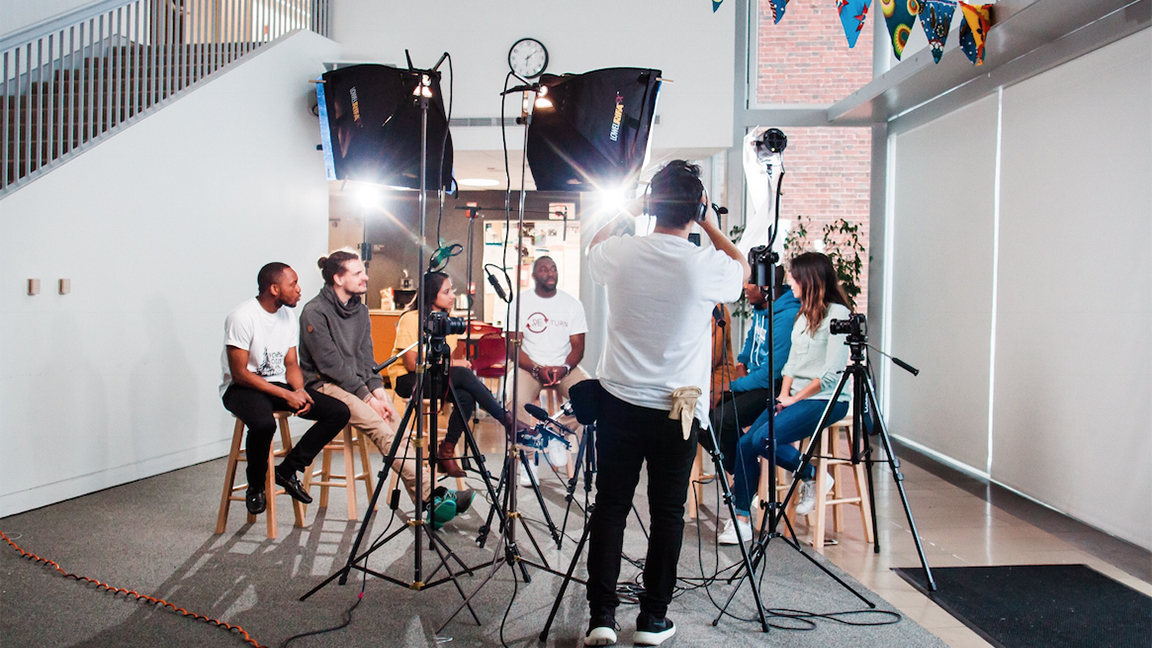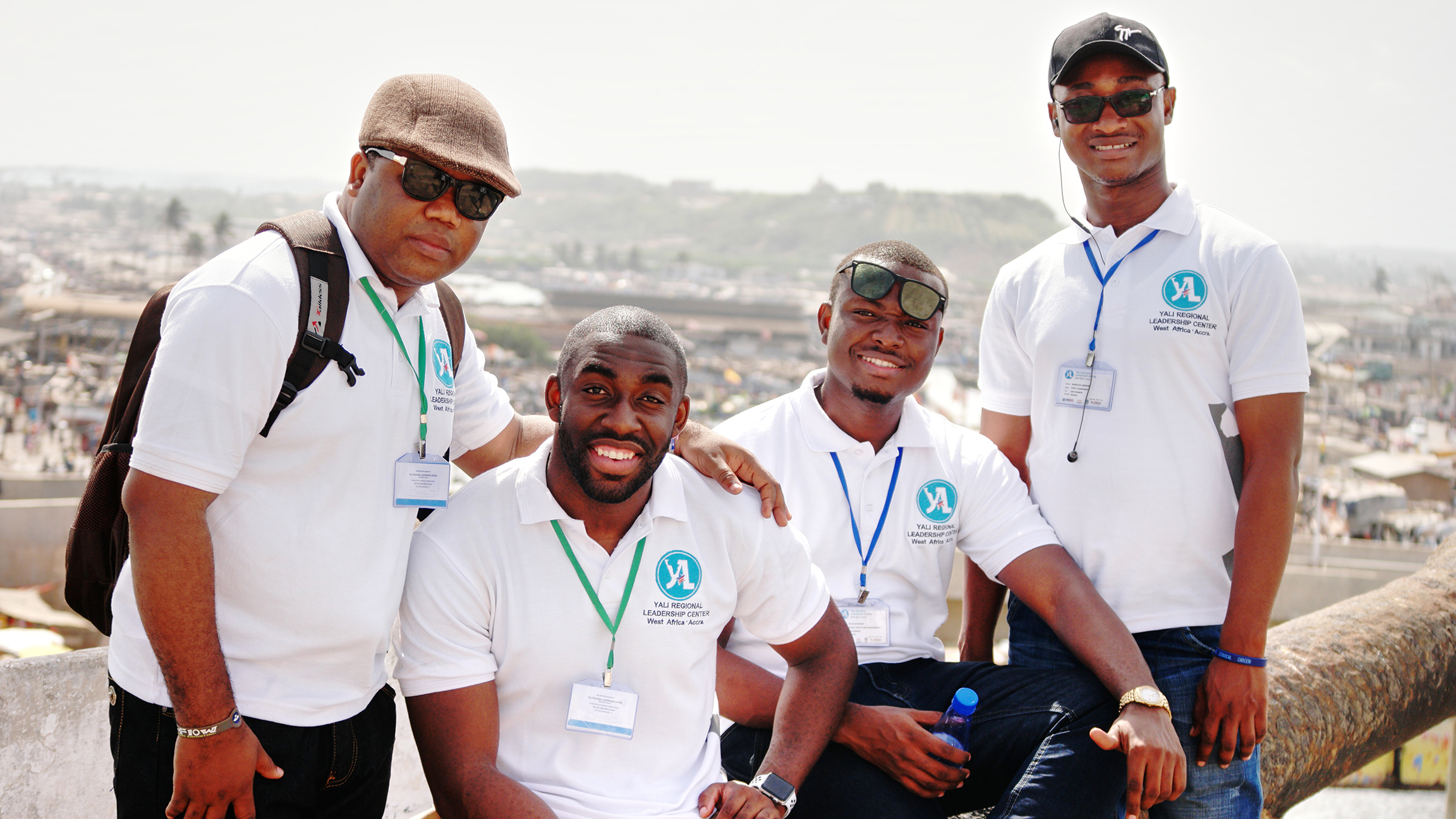
By Karen Shih
For 12-year-old Isaac Cudjoe, who immigrated to the United States at age 3, it was easier to avoid being outwardly African. Soccer? He chose to play football and watch basketball. Traditional Ghanaian stews? He wanted to just grab a sloppy Joe in the lunch line like everyone else. Kente cloth? He’d rather pull on jeans and a t-shirt. He felt peer pressure to fit in—or be left behind.
But today, that once assimilation-focused kid is launching an ambitious, multi-part project about the reintegration of diaspora—the vast population of people and their descendants who have left their home countries and settled elsewhere—throughout the world.
“What does it mean to go back—or not? What does it mean to make an impact?” says Cudjoe, MA COEX’18. “There’s lots of conversation about migration, but there’s not enough cross-cultural conversation. Nobody’s asking Vietnamese Americans why their experiences are so different from Ghanaian Americans.”
That’s why he brought together people from all over the world for his documentary, “(Re)turn,” and is working with fellow student Violet Nguyen, MA SID’19, to launch a social movement by the same name.
“This movement is about your rootedness, wherever that is,” he says.
Their goals: to develop a network of diaspora representatives and a self-assessment framework for members of the diaspora to think critically about development projects they seek to bring back to their home countries. Ultimately, they want to revolutionize the way remittances are sent to developing countries. Rather than the traditional model of sending money directly to family or friends for personal use, they want to put the funds toward impact investment in schools or hospitals that could benefit a community more broadly.
While Cudjoe has contemplated the idea of diaspora for years, a recent trip to Ghana gave him new fuel and insight for his work. He went to Accra in March as part of the Young African Leaders Initiative (YALI), where he was the lone American-raised representative among a diverse contingent of regional leaders, from doctors to government officials, pastors to entrepreneurs. He gained an increased appreciation for the fine line that people scattered around the world must walk as they seek to contribute to their homelands.
“People in the diaspora need to unlearn stereotypes they’ve been taught about their countries, relearn the truth and make purposeful decisions to serve their communities,” he says. But it can’t be one sided. “Governments around the world need to understand that there’s this renewed interest, so they need to create proper channels for people who can do things like impact investment, especially in developing countries.”
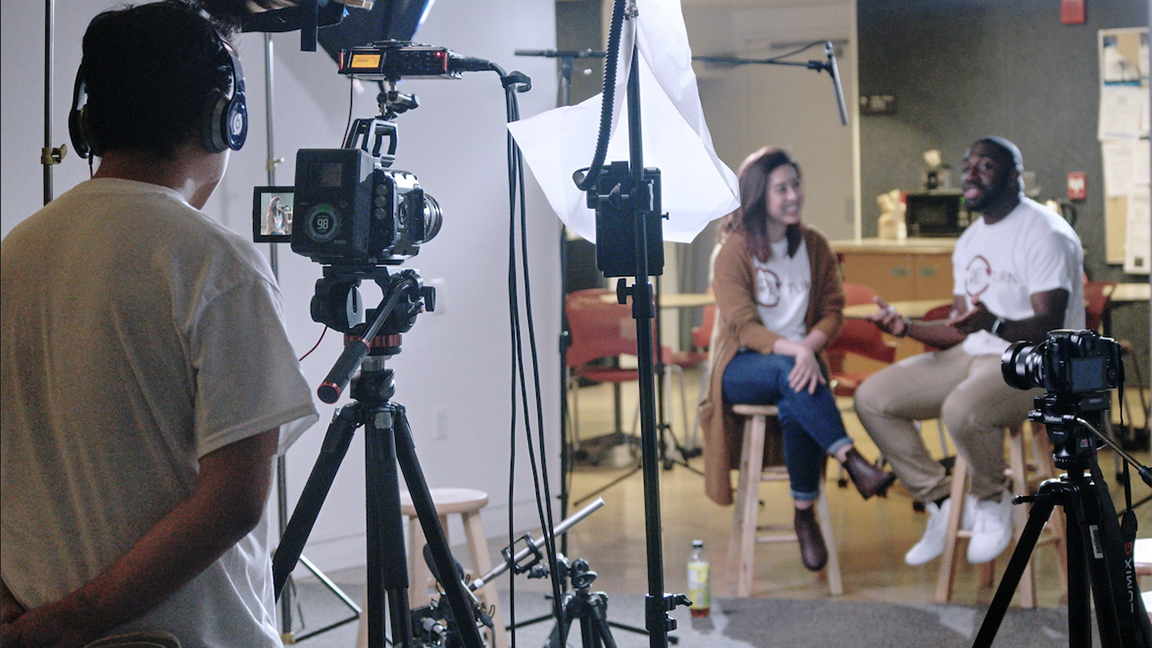
From Bogoso to Brandeis
Five hours from Ghana’s capital city of Accra lies Bogoso, an impoverished village where Cudjoe lived until age 3. While outsiders have benefited from its precious minerals, locals have largely been left behind—though the people and their spirit are more valuable than any of the minerals there, says Cudjoe. Many have turned to small entrepreneurial ventures, while Cudjoe’s father and mother found work as a teacher and a seamstress, respectively, to raise their five children.
“My dad always tells me he didn’t plan to come to America,” Cudjoe says. It was on a whim that his father applied for the U.S. Diversity Visa Program, urged on by friends who were doing the same. When a letter arrived telling him he’d been selected, he connected with a distant cousin living in the suburbs of Washington, D.C. and set off alone to scope out the unfamiliar surroundings. When he decided he could build a future in Maryland, he brought over his wife and youngest son.
“My parents did a really good job of keeping me aware of my Ghanaian heritage in a way that eventually made me want to investigate it on my own,” Cudjoe says. Even while he maintained a steadfastly American identity at school and in public, at home, he spoke Twi and Fante, his parents’ local dialects, ate Ghanaian food, and absorbed some Ghanaian folklore, which made its way into an occasional book report. On the weekends, he attended a Nigerian church, which connected him with fellow West African immigrants and their kids.
It wasn’t until college that he fully dove back into his roots. He was driven by increased societal acceptance of African culture—through media, food and fashion—as well as new, direct access to pan-African and cultural clubs at Mount St. Mary’s University in rural Maryland. There, Cudjoe studied political science and history, dipping his toes into international relations for the first time. He worked on development projects to help schools in Paraguay and even returned to Ghana for the first time as an adult to teach over the summer—but quickly realized he wasn’t making much of an impact. He started to think seriously about what it meant to be a member of the African diaspora, coming to a central question: How can diaspora impact the world in the right way, that’s respectful of the existing leadership and social hierarchies in their home countries?
“I realized an undergraduate degree wasn’t enough to make the change I wanted to make. I wanted rigor, and an environment where more people were like me,” he says. That’s when he turned to Heller.
A rare opportunity
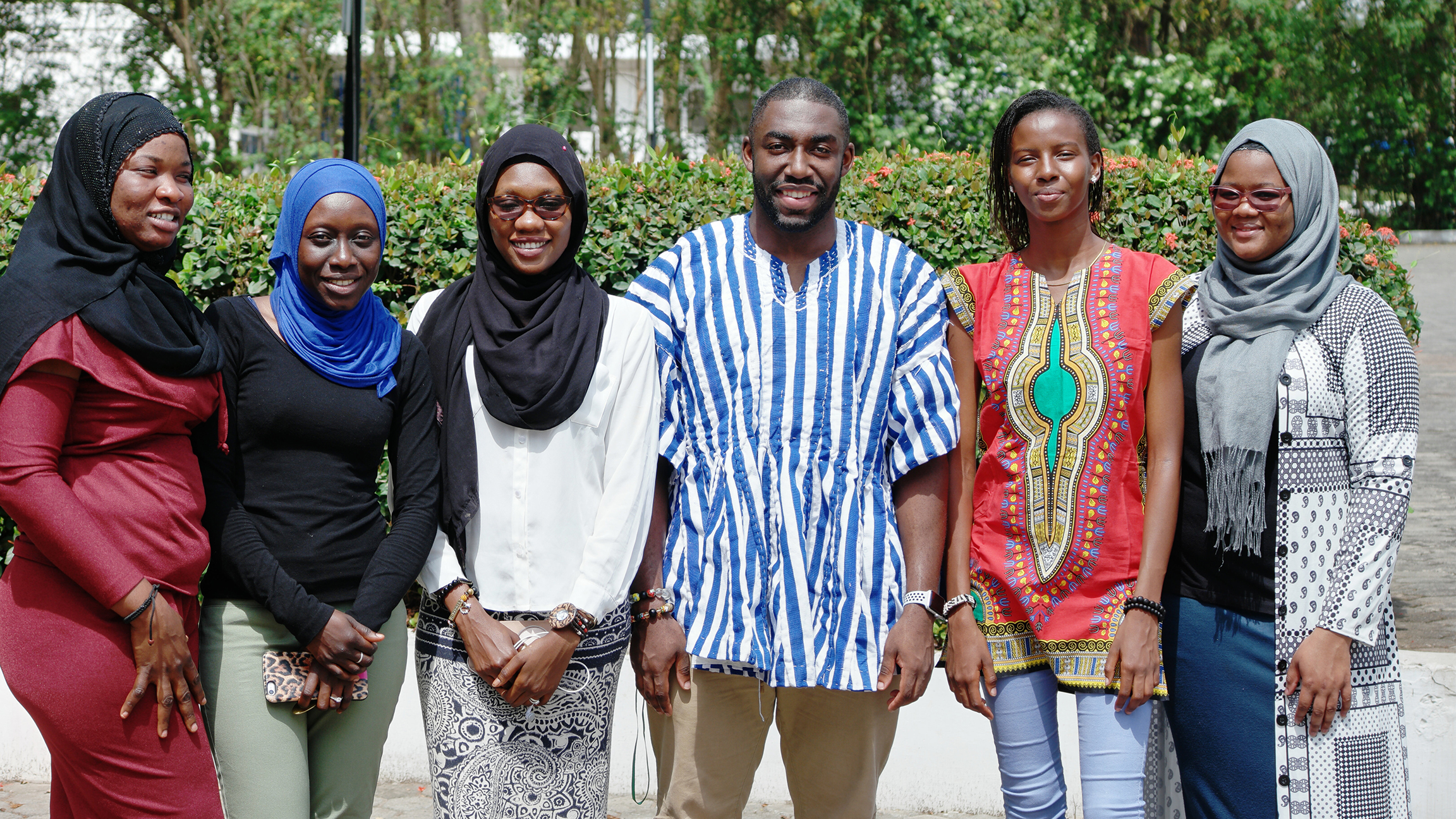
During his first year studying conflict resolution and coexistence, Cudjoe has become a leader in his Heller cohort. He worked with Associate Dean for Equity, Inclusion and Diversity Maria Madison to create an event in the Sankofa Community Conversations series at Heller, which fosters dialogue around difficult issues, as well as on his independent study project, the documentary.
“He’s a natural ethnographer,” Madison says. “He’s gregarious, an extrovert and helpful. He’s not just speaking with you—he’s processing and trying to figure out where your voice fits into a paradigm.”
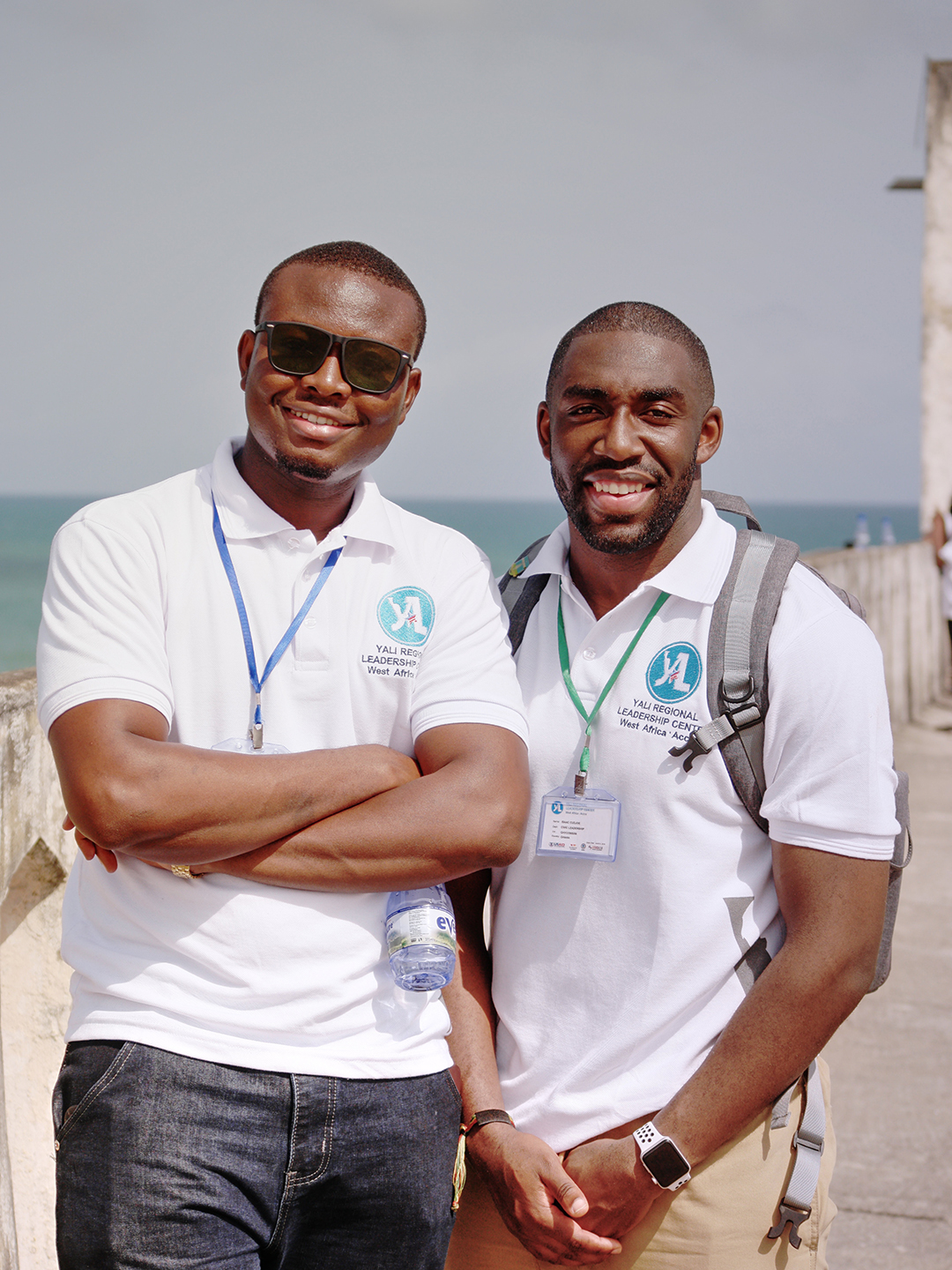
When a rare opportunity arose for Cudjoe to learn alongside youth leaders in his home country, he jumped on it. He spent all of March at the YALI Regional Leadership Center in Accra. The program was created by President Barack Obama in 2010 to offer in-person and online training, networking and professional development opportunities for sub-Saharan African leaders between the ages of 18 and 35. More than 4,000 people applied for a spot, and Cudjoe was one of just 148 finalists invited—and the only one raised in the United States to do so.
“It was amazing to meet all the participants, who live in the contexts I’m studying every single day,” says Cudjoe, who took classes with leaders from nine different West African countries. Among the highlights: meeting the founder of CP Awareness Ghana, a non-governmental organization (NGO) that raises awareness and funds for children with cerebral palsy; connecting with a young member of Parliament who used to work as a radio deejay; and visiting a rice farm that creates sustainable funding for an NGO that addresses human trafficking.
“The whole YALI experience reinforced the education I got at Heller,” says Cudjoe, who received support from the Heller Annual Fund to attend. “The main thing I learned—and one thing Professor Alain (Lempereur, director of the COEX program) taught us during our negotiation class—was the importance of collaboration. We need to create coalitions, partnerships across borders.”
Cudjoe juggled YALI during the day and Heller at night, relying on classmates to video chat him into class. But despite the crazy schedule, he returned to Heller energized to kick off filming for the second part of his documentary.
Creating global conversations
(Re)turn was never meant to be just about Cudjoe and his journey. While he shared his own migration story on camera in part one (above), his goal was always to invite others to join the conversation around reintegration of diaspora. He posted part one on Vimeo, as well as a shorter version on Facebook and Instagram, where it gained more than 10,000 views.
That’s what drew Nguyen to the (Re)turn movement.
“When I saw on Facebook that Isaac was starting this project, I messaged him immediately, because this is what I’ve felt for a very long time—that dynamic between being Asian American and Asian,” Nguyen says. “I want to bridge the two, and reconnect the youth here, who’ve lost interest in their heritage and roots, with the youth there, especially social entrepreneurs.”
She’s one of seven fellow Brandeis students featured in part two of the documentary, with roots in Burundi, Germany, Mexico, India, Nigeria, Vietnam and Liberia.
“One of the biggest misconceptions is that we all came here for the same reasons,” Cudjoe says to the participants. The documentary features a roundtable-style discussion, spurred by Cudjoe’s questions. He starts with: “Why did my parents come here? What was their intention? What did they want to build?”
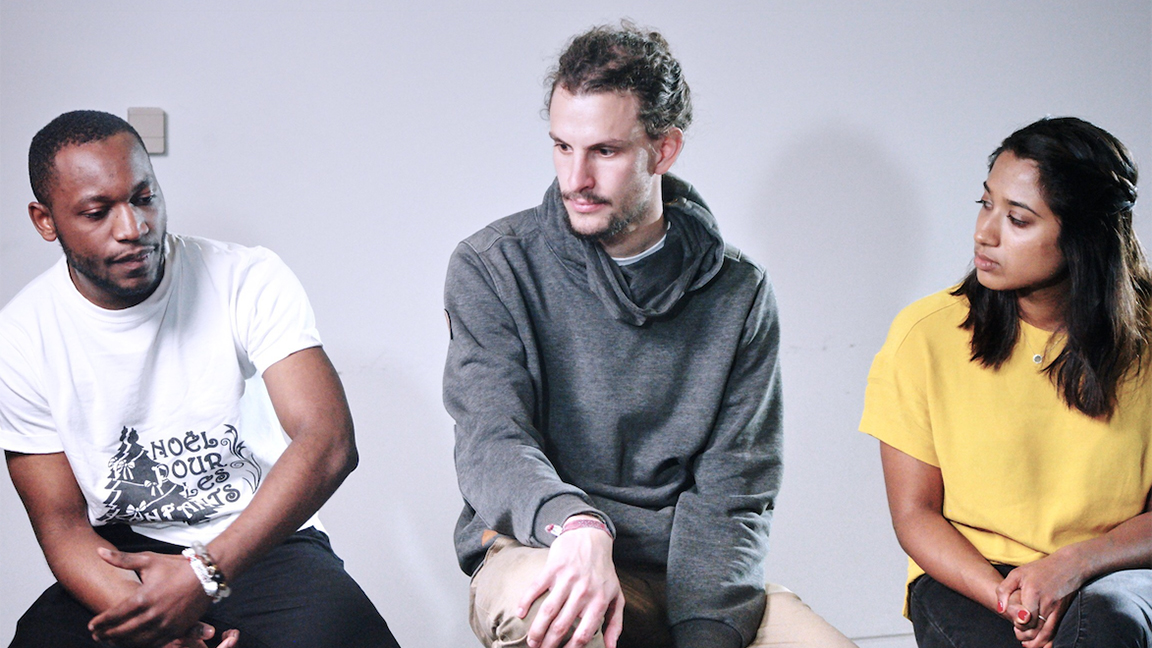
“My dad was born and brought up in a very poor village” in India, says Nimisha Shinday ’17, MA IBS’18. “The first chance he had, he made the choice to come to America. He wanted to come here for a better life for himself, but he also wanted that for his six siblings and their kids.”
Burundian-born Amos Izerimana, MA COEX’18, who spent the first 10 years of his life in a Tanzanian refugee camp, says, “I wouldn’t really say I had a choice” in coming to the United States. “Everyone wanted to leave the refugee camp. My family applied (for resettlement) because we were receiving threats.”
Cudjoe also challenged participants with tougher questions: “What is our role in the developing world? What is our responsibility? How do we bring solutions?”
“There are so many misconceptions about what a Mexican is, who a Mexican is and why we’re here in the United States. One of my biggest roles is to expand people’s ideas or visions of who Mexicans are,” says Zyanya Aguilar-Nelson, MA SID’19.
Nguyen sees her role as a bridge between the Asian American and Asian communities, while also “remaking Asia into a place where it can be a land of opportunity.”
The discussion concludes with the participants making commitments to advance the reintegration of diaspora. Those range from creating virtual and physical pathways home for people who don’t know how to establish those connections; pairing members of the diaspora and those in their home countries for mentorships; and sponsoring entrepreneurs.
“I came to the U.S. for opportunities, but that doesn’t mean there’s no opportunities in Liberia,” says Joe Wilson, MA SID’18.
Now, with the documentary completed, Cudjoe has returned to Ghana to complete the service portion of YALI. There, he’ll have the opportunity to meet with the Ghanian government’s diaspora representative, as well as screen the documentary at a library in Accra. He’s confident the network he’s built up through YALI and Heller will transform the (Re)turn project into a global movement.
“Heller’s a unique environment,” says Cudjoe, who will continue his work on (Re)turn with the support of Sandy Jones, his practicum advisor and the associate director of the COEX program. “I lit a match and it started a fire. I don’t think I could have found that anywhere else. Coalition-building of any sort starts with the individual and the people you surround yourself with, so I’m excited to see where this goes.”
